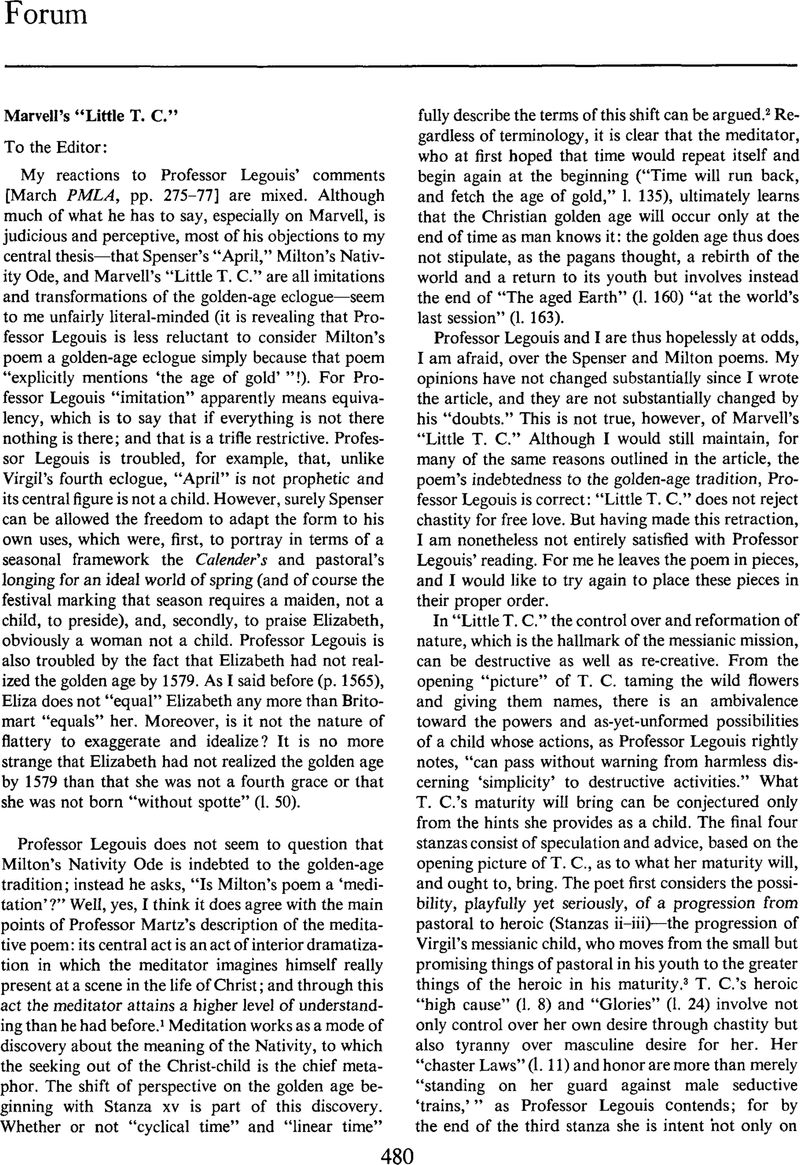No CrossRef data available.
Article contents
Marvell's “Little T. C.”
Published online by Cambridge University Press: 01 December 2020
Abstract

Information
- Type
- Forum
- Information
- Copyright
- Copyright © Modern Language Association of America, 1971
References
Notes
1 Defining “meditation” is a slippery task, as Professor Martz admits: “In the end, no definition can hope to hold the adventurous vitality of the meditative art. . . . But perhaps it is enough to say that the central meditative action consists of an interior drama, in which a man projects a self upon a mental stage, and there comes to understand that self in the light of a divine presence” (“Introduction,” The Meditative Poem; Garden City, N. Y.: Anchor Books, 1963, p. xxxi). Professor Martz examines the Nativity Ode in terms of “Problems in Puritan Meditation,” Chap, iv of The Poetry of Meditation, rev. ed. (New Haven: Yale Univ. Press, 1962); and he includes the poem in his anthology, The Meditative Poem, as one of “a number of poems . . . that may not at first, and perhaps never will, appear to participate in the meditative genre” (“Introduction,” p. xxx).
2 Let me take this opportunity to make a small correction: The reference to Augustine's critique of pagan cyclicism should be to De Civ. Dei, xii, 14–16, not to Confessiones, xi, 14–30 (both passages, however, discuss the nature of time).
3 On the relationship of great things to small in Virgil, and for an excellent discussion of this concept in the fourth eclogue, see John S. Coolidge, “Great Things and Small: The Virgilian Progression,” CL, 17 (1965), 1–23. See also the introduction (“The Pastoral Context”) to my book, Spenser, Marvell, and Renaissance Pastoral (Cambridge, Mass.: Harvard Univ. Press, 1970).

